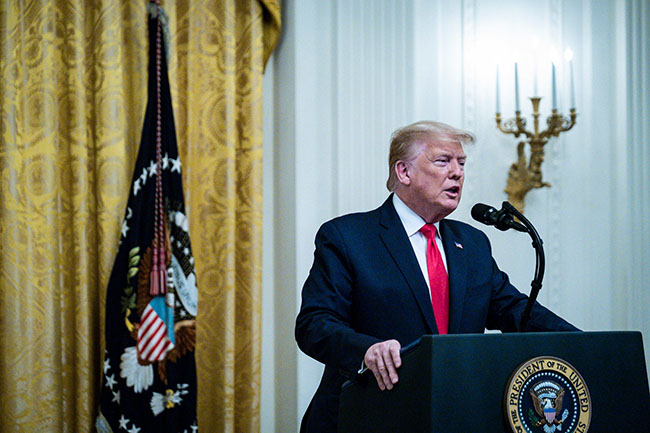Mexico played a prominent role in the 2016 United States presidential campaign.
Then-candidate Donald Trump essentially pointed to Mexico as a source of problems. From his perspective, the country was not only taking advantage of the free trade agreement that went into effect in 1994, but also sending people to the United States who were stealing jobs from American citizens.
He managed to instill in the public conversation the idea that trade deficits were undesirable — without any nuance — and that he, of course, would reverse the imbalance by renegotiating the treaty.
Despite the continuous threats, Trump’s victory caught Mexico off guard in that discussion. The trade relationship was taken for granted, and there wasn’t even enough information on hand to defend the agreement.
Hastily, a team was assembled that successfully renegotiated the treaty (the US-Mexico Canada Agreement or USMCA), which was signed in November 2018 by the presidents of Mexico and the United States and the Canadian prime minister. It went into effect on July 1, 2020.
The new treaty is very similar to the previous one, but there are some important changes, including the addition of the “sunset clause,” which means that the agreement will be reviewed every six years, with the idea of providing certainty and ensuring that the terms remain relevant.
This idea, which sounds very good in theory, contrasted with the comments of the then-U.S. Trade Representative, who indicated that the clause would help prevent the country from finding itself in an unequal relationship.
The sunset clause will be activated in 2026 leading to a USMCA review, most likely with Trump as president of the United States again. Although the current agreement was signed under his administration, Mexico would do well to be prepared not only for a political bashing campaign, but also for an aggressive U.S. approach to trade.
Some say that Mexico fared well under the Trump administration, and even if we concede that assertion, there is no reason why the same should apply in another Trump term.
The global economy has changed in recent years, adjustments in production methods that began in the years preceding the pandemic have accelerated, and income and consumption patterns have changed. But one thing has remained: the United States is still the largest consumer, and as long as that is the reality, someone will provide the goods the country demands.
Mexico has benefited from the economic growth of its largest trading partner. It’s not just about the relocation, or nearshoring, of companies and supply chains; that phenomenon is different. The increase in income, including that derived from the pandemic aid programs in the U.S., has boosted consumption and consequently trade. The trade deficit that so bothered Trump during the 2016 campaign still exists.
But there is an additional ingredient: the growing trade relationship between China and Mexico. And the United States doesn’t like that at all. Trump likes it even less.
Making the assumption that we already know Trump — that we know his ways of negotiating and exerting trade pressure, and therefore we have this scenario figured out — would be naive.
The current disaster of the Democratic Party — despite Biden’s good economic results — has empowered the former president. It won’t be the same Trump if he’s re-elected; it will be a reloaded one.
Will Mexico be ready for that USMCA review in 2026?
This article was originally published in Spanish by El Universal
Valeria Moy has been the director of the Mexican think tank IMCO (Mexican Institute for Competitiveness) since 2020. She is an economist with degrees from the Autonomous Technological Institute of Mexico (ITAM) and the London School of Economics. She is a regular columnist for El Universal and El País newspapers and was named one of the 100 most powerful women in Mexico by Forbes.




